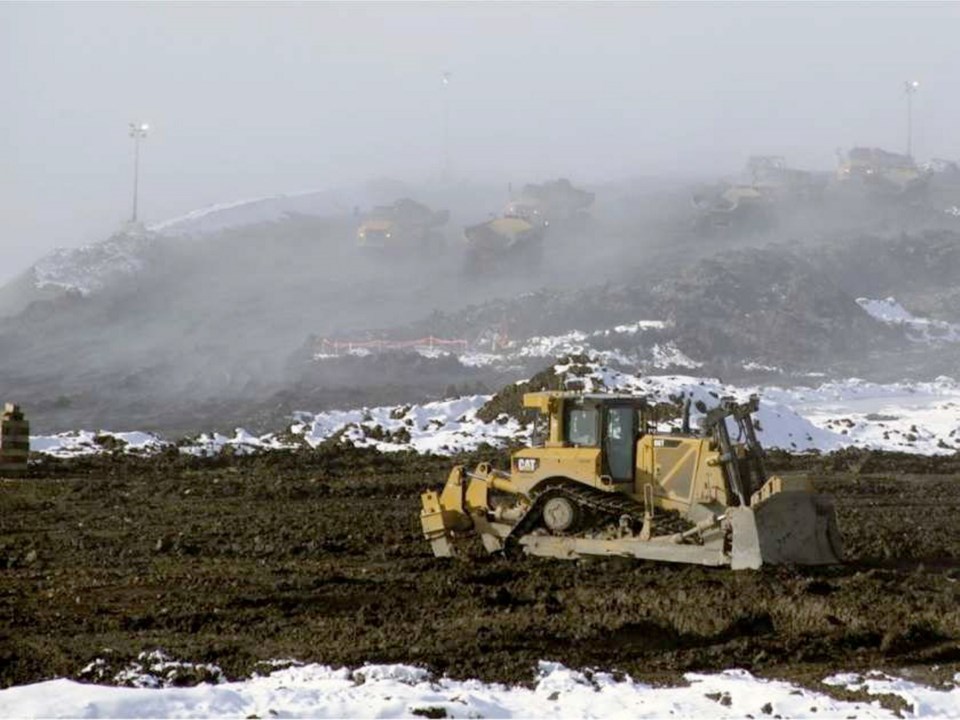VICTORIA — Senior B.C. government staff have taken a hands-on approach in the communications of B.C. Hydro’s Site C dam, in keeping with the premier’s promise to push the controversial mega-project to “the point of no return.”
Internal government emails show several times in the past year top officials in the office of the premier and Energy Minister Bill Bennett directed the timing and content of major Site C announcements.
That, combined with B.C. Hydro’s shift in tone to more aggressively attack its critics, have left some wondering about the politicization of the Crown power corporation and its $9 billion ratepayer-funded dam.
Bennett confirmed the direct control of Site C announcements in an interview Monday, making no apologies for doing what he said is his job to manage how the public understands the project.
“I’m the minister who was made responsible in 2013 for the Site C project. … I know that if something goes wrong, even if an announcement goes out the wrong way or leaves the wrong impression, I’m responsible for that,” he said. “It’s a Crown corporation, it’s not a private company.”
Premier Clark has vowed to get Site C built, despite continued opposition from environmental groups and First Nations, who say the power isn’t needed, the project is too expensive and the environment will be hurt by flooding 83 kilometres of the Peace River Valley south of Fort St. John.
She said last year she hoped to get Site C to the point of no return. Yet it remains politically sensitive, four months before the provincial general election — both in terms of the schedule, budget and continued environmental problems, but also because the Opposition NDP is pitching the electorate on a plan to possibly shut Site C down if it wins office.
“Even though we have the most politicized management in the history of B.C. Hydro, it’s still the Liberal premier’s office who is ordering them to do things,” said NDP critic Adrian Dix. “They appear obsessed with the spin on those policies.”
Bennett said he doesn’t direct the day-to-day management of B.C. Hydro. But Site C is different.
“Site C is political,” said Bennett. “All the politicians have opinions, all the media have opinions. It doesn’t take the premier’s office or minister’s office to make it political, it is political. I think we all know that.”
The government exempted Site C from review by the B.C. Utilities Commission, arguing that politicians, and not bureaucrats, should make such a large decision.
Political control also extended to the project’s public relations, according to the documents, obtained through a freedom of information request.
At the end of March, Hydro was ready to announce the completion of a temporary bridge across the Peace River. Then Bennett raised concerns that the timing might be too close to an April 1 increase of four per cent on Hydro rates, emails show.
When Hydro wanted to announce the completion of its 1,200-room Site C lodge for construction workers in June, it first went through Bennett, and then the premier’s office to decide upon timing.
Email records also show staff for the premier and minister helped handle Hydro’s planned reaction to a B.C. Supreme Court challenge by two First Nations opposed to Site C, an economic development agreement with the McLeod Lake Indian Band, and the materials Hydro used for a press conference with reporters from the legislative press gallery in July.
Recently, Bennett’s former chief of staff Chris Sandve was appointed to senior policy and communications duties at B.C. Hydro.
And Hydro has begun aggressively fighting its critics.
After the New York Times reported critically on Site C in December, Hydro CEO Jessica McDonald tweeted out a letter that questioned reporter Dan Levin’s personal motives.
“Writing his recent article about the Site C hydropower project for the New York Times, Dan Levin wants you to know certain perspectives that have attracted his interest in the project,” read the letter. “He doesn’t want you to know much else.”
Bennett said he supported the tone.
“This guy did a hatchet job on us,” he said. “He was not fair and I don’t believe he was professional. If I had been writing the letter, it would have been more aggressive than what Hydro sent.”
Hydro is just trying to combat “a tremendously high level of conjecture and just outright baloney said about Site C,” argued Bennett.
Dix said all the government interference has undermined public trust in Hydro. Its attack on the New York Times, he said, “had all the professionalism of a Donald Trump tweet.”



